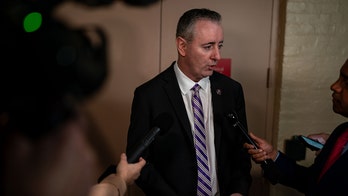MONTPELIER, Vt. – Vermont became the first state to ban the controversial natural gas drilling practice known as hydraulic fracturing, or fracking.
Gov. Peter Shumlin signed the ban into law Wednesday afternoon, The Burlington Free Press reported.
However, the law will have no immediate effect -- Vermont does not have any drilling projects underway, and there is no information to suggest that the state has underground gas reserves that could be tapped by fracking.
But Shumlin noted that "we don't know that we don't have natural gas in Vermont" and said the measure "will ensure we do not inject chemicals into groundwater in a desperate pursuit for energy."
"One of the biggest challenges that future generations are going to face is clean, drinkable water," he added. "We have an abundance of it in Vermont. I think it's a great message that we're going to protect it at all costs."
The Vermont law also bans the importation and storage of wastewater associated with fracking.
The drilling tactic involves the high-pressure injection of a mixture of water and chemicals deep underground to blast apart shale rock to release natural gas.
Opponents say fracking has contaminated groundwater and triggered earthquakes, though the energy industry maintains that environmental concerns have not been scientifically proven and that tapping shale gas reserves is critical to national energy security.
The American Petroleum Institute also wrote to Shumlin last week, saying that the bill may be subject to constitutional challenge.
New York currently has a moratorium on fracking, which environmental groups have lobbied Gov. Andrew Cuomo to turn into a statewide ban.




